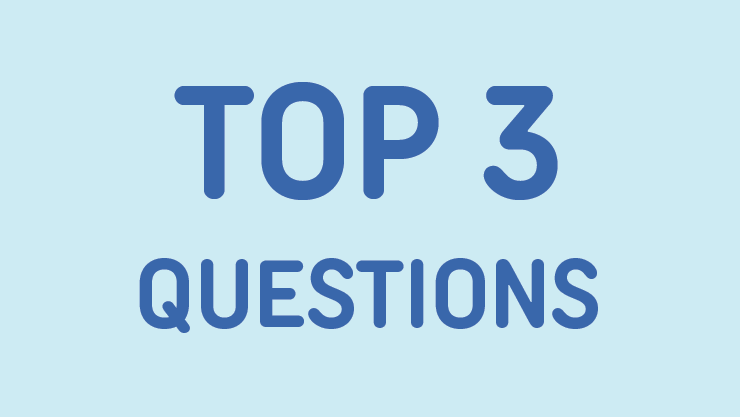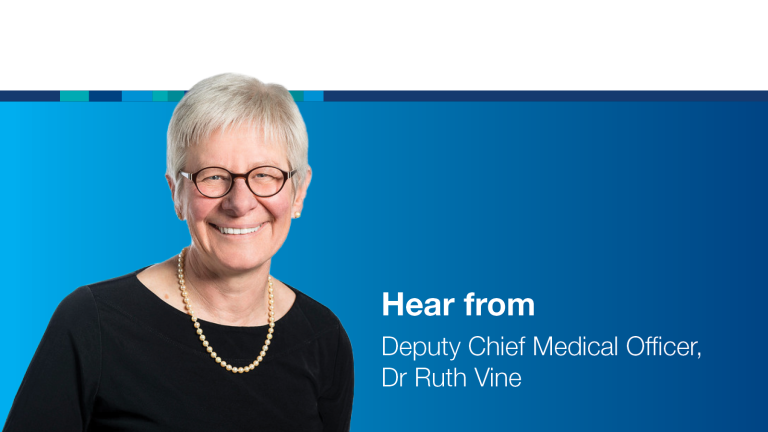
Hello, my name is Dr Ruth Vine and I'm the Deputy Chief Medical Officer for Mental Health at the Department of Health and Age Care. Today, I'll be talking about the release of the prevalence results from the National Study of Mental Health and Wellbeing.
Before getting into the results, I want to first to acknowledge those people among us who have a lived or living experience of mental ill health. We recognise their unique experiences and those of carers, families, and loved ones supporting people with mental ill health.
Friday the 22nd of July was an important and exciting day, as it marked the release of the prevalence results from the National Study of Mental Health and Wellbeing. This is the first time, since 2007, that national mental health prevalence rates have been available. The study used a structured questionnaire that provides answers to whether the person has had a diagnosed mental illness, such as anxiety, depression or substance misuse as well as a measure of psychological distress and it included a range of socio-demographic details. And this high quality data helps us understand the challenges faced by Australians, and how Australians manage these challenges. These estimates will, importantly be used to inform evidence based advocacy planning, policy, service design and program management. There is also new information provided in this release, which has never been available before at a national level. For example, information relating to self harm, and disordered eating. This sort of information helps us to direct our efforts and make sure people can access care when they need it.
This release is the first of two parts of this study. It covers an initial 5,500 people and the second part, expected to be release in 2023, hopefully will bring that number up to 17,000. So far, the results tell us that 1 in 5 Australians have had a mental disorder in the previous 12 months and 2 in 5 have experience one in their lifetime. This overall figure has remained stable since 2007, however, these overall statistics do not reflect the potentially important challenges that certain groups within our community are facing. So, more than half, 54.4 percent, of people who identified as gay, lesbian, bisexual, or who used a different term such as asexual, pansexual or queer, experienced a mental disorder in 2020-21, with anxiety disorders the most prevalent. And almost half, 47 percent, of those who had a mental health disorder in 2021 sought support and that was an increase since the last study in 2007, which is positive news. Across their entire lifetime, around 1 in 6, or 16.7 percent of Australians reported having suicidal thoughts or behaviour with females, nearly 19 percent, having a higher rate than males, at 14.5 percent. 38 percent of Australians were close to someone who had attempted or died by suicide, a tragedy which impacts family, friends and communities. And significantly around 40 percent of young people aged 16 to 24 were found to have experienced a mental disorder in the previous 12 months, which is higher than older age groups and consistent with other recent studies, both nationally and internationally.
These are just some of the results released last week, with more information on the study available on the ABS website. So, what's being done to support the mental health, perhaps particularly of young people. Headspace is the primary national platform for the provision of services to young people aged 12 to 25 who are experiencing or at risk of mild to moderate mental health illness and there are currently 150 Headspace services operating nationally, with commitments in place to grow that network. The government also funds a range of digital mental health services for young people. These include Kids Helpline, ReachOut and eheadspace. In addition, the National Mental Health Commission undertook an extensive consultation with young people to understand their experiences with the mental health system and identify where there were deficiencies, and I know that we're doing more work in that area.
We know from mini reports and enquires into Australia's mental health system that it is often experiences as being fragmented, complex and difficult to navigate for consumers and carers. The results from this survey emphasise that we certainly have more work to do. The government is committed to implementing ongoing system reforms to make a difference to Australians mental health and... going to improve mental health. The government also funds Medicare rebated mental health services, under the Better Access Initiative. They aim to improve outcomes for people with diagnosed mental health disorders through the provision of evidence based treatments, like focused psychological treatments. The Better Access Initiative is currently undergoing a comprehensive evaluation which will help guide future reforms of the initiative.
From the 1st of July, 2022 all Australians are now able to access the Head to Health national phoneline. That's on 1800 595 212. That free service provides an easy, accessible entry point into treatment, assessment and referral between our health services. Head to Health Adult Mental Health Centres are now located in each jurisdiction and provide an entry point for adults to access mental health services and supports in the community. I would like to acknowledge that these last two years or so have been challenging for all Australians, with the impact of the COVID-19 pandemic. The mental health impacts of the pandemic have been profound and may well continue to impact Australians into the future. The data from this study alone cannot tell us about the full impact of COVID-19. But the fact that the data was collected during the pandemic is not only a fantastic achievement, but also stands us in good stead to plan services to meet the needs of Australians into the future.
And finally, I would like to remind you that there are a variety of support services if you feel the need to talk to someone or seek support about any concerns or other experiences that the findings of this study raise. Thank you very much for watching today. Thank you.







